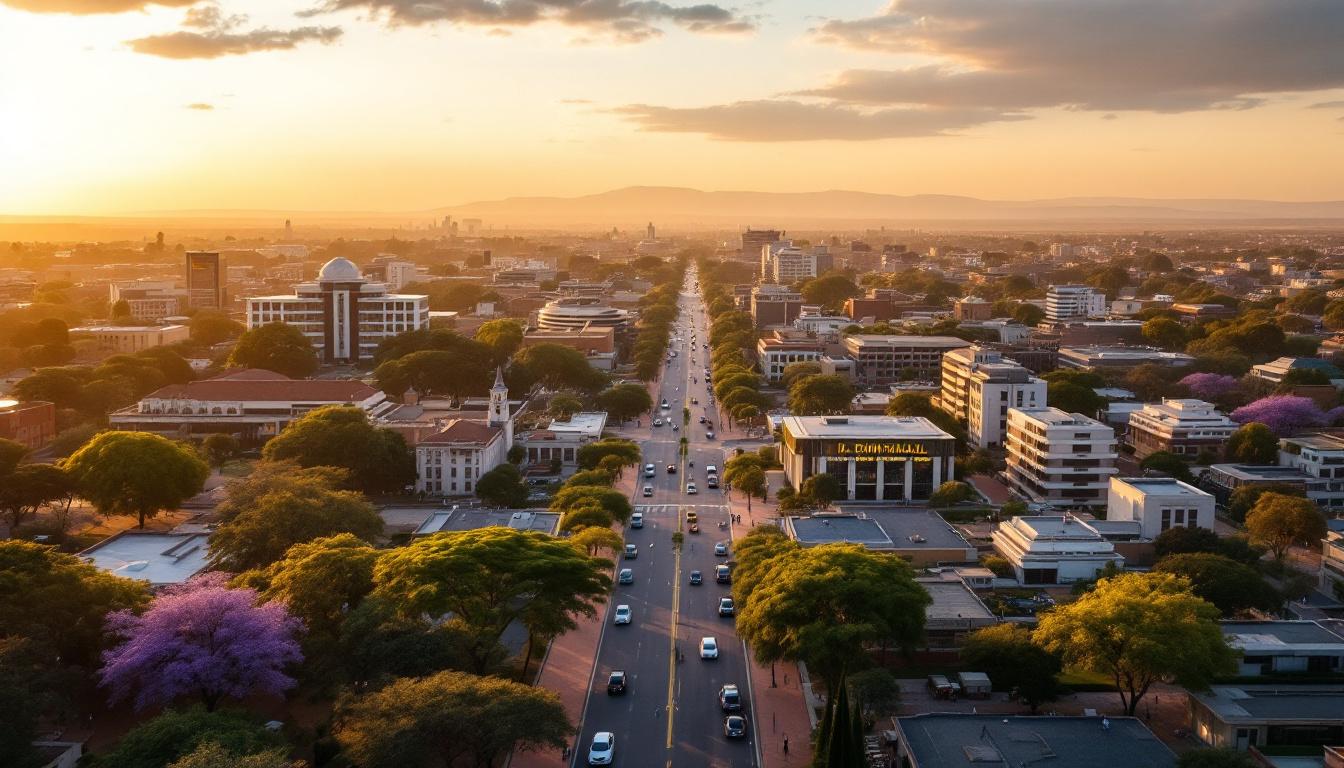Six months ago, a missed connection in Johannesburg led me to an overnight layover in Gaborone, Botswana. What I discovered in those 18 hours completely transformed my perspective on African capitals. This diamond-powered city of just 227,000 people delivers everything Johannesburg promises but with none of the chaos, crowds, or safety concerns.
I expected another forgettable airport town. Instead, I found Africa’s best-kept urban secret – a place so authentically cosmopolitan that I’ve rerouted three subsequent trips through Botswana just to spend more time here.
Now when friends ask about southern African gateways, I tell them to skip the obvious choices entirely. Gaborone isn’t just better – it’s what every African capital should aspire to become.
The accidental discovery that changed everything
My layover that became a love affair
That delayed flight from Sir Seretse Khama International Airport forced an unexpected city exploration. Within an hour of leaving the terminal, I was walking down Main Mall – a pedestrian boulevard that feels like Singapore’s Orchard Road redesigned for human scale. English flows effortlessly here, making navigation seamless for international travelers.
The moment I realized this wasn’t ordinary
At a local café, I overheard university students debating politics in three languages – English, Setswana, and Afrikaans – with the kind of intellectual freedom that’s become rare across the continent. The barista, noticing my surprise, smiled and said, “Welcome to Gabs. We do democracy differently here.” That casual confidence told me everything about Botswana’s 60-year track record of political stability.
What I found that guidebooks never mention
The urban planning miracle nobody talks about
Gaborone was purpose-built in 1966 as Africa’s first post-independence planned capital. Unlike cities that evolved organically, every street reflects intentional design for modern African life. The government district showcases stunning contemporary architecture, while residential areas like Tlokweng blend traditional Tswana compounds with suburban convenience.
Diamond wealth without the attitude
This city sits atop one of the world’s richest diamond deposits, yet maintains refreshing humility. Local restaurants serve exceptional meals for $15-20, mid-range hotels cost $70-100 nightly, and cultural experiences remain accessible rather than commercialized. The prosperity shows in infrastructure quality, not inflated prices.
The transformation that surprised me most
Shattering my African capital assumptions
Every previous African capital experience involved navigating traffic chaos, security concerns, and tourist hustles. Gaborone operates like a well-managed mid-sized city anywhere in the developed world. Traffic flows smoothly, streets stay clean, and locals engage visitors with genuine curiosity rather than transactional urgency.
Cultural authenticity without performance
At the University of Botswana campus, I witnessed something remarkable – young Africans confidently embracing both traditional Tswana values and global perspectives. No cultural performance for tourists, just authentic daily life in a society that successfully modernized without losing its soul. Students invited me to their favorite spots, sharing insights about Botho philosophy – Botswana’s indigenous approach to community ethics.
Why I’ll never travel the same way again
The regional gateway that actually works
Most travelers use Johannesburg as their southern African hub, enduring urban stress before heading to safari destinations. Gaborone offers direct connections to Maun and Kasane – the actual gateways to Okavango Delta and Chobe National Park – without the metropolitan overwhelm. It’s geographically logical and psychologically superior.
The cultural immersion opportunity hiding in plain sight
While everyone chases wildlife experiences, they miss Botswana’s greatest success story – building Africa’s most stable democracy. Spending time in Gaborone provides context that transforms subsequent safari experiences. Understanding how diamond revenues fund conservation and community development makes wildlife encounters feel like participation rather than consumption.
Planning your Gaborone discovery
July offers perfect conditions – clear skies, mild temperatures around 20°C, and vibrant university energy as students return from winter break. Budget $75-100 daily for comfortable exploration, including meals at places locals actually frequent.
Book accommodation near Main Mall for walkable access to government districts, cultural sites, and the emerging arts scene. Skip the tourist-focused lodges – the city’s authentic charm lies in its confident normalcy, not manufactured African themes.
That accidental layover taught me to question travel assumptions. Sometimes the best discoveries happen when we stop following everyone else’s route and trust our own curiosity.
